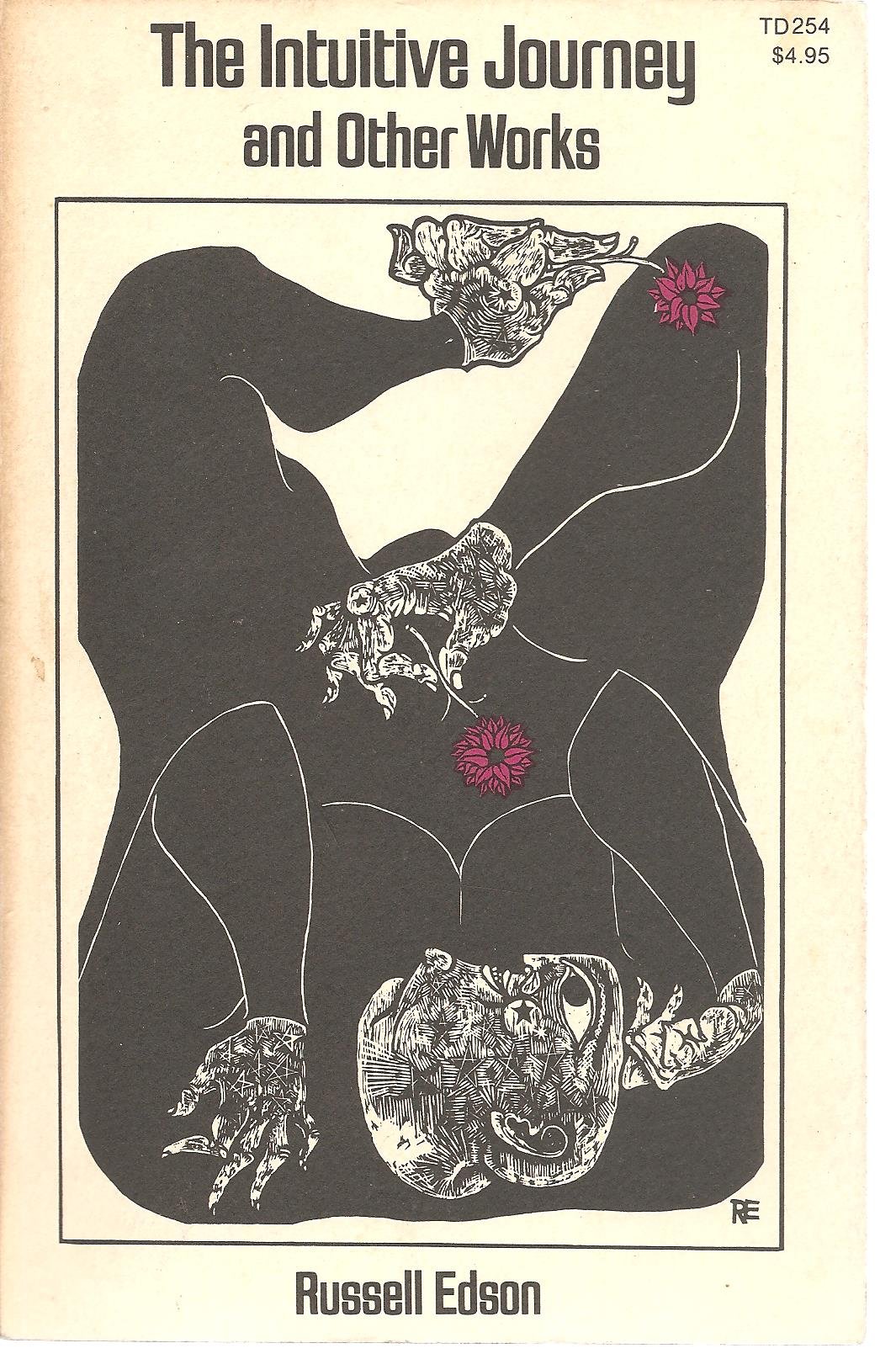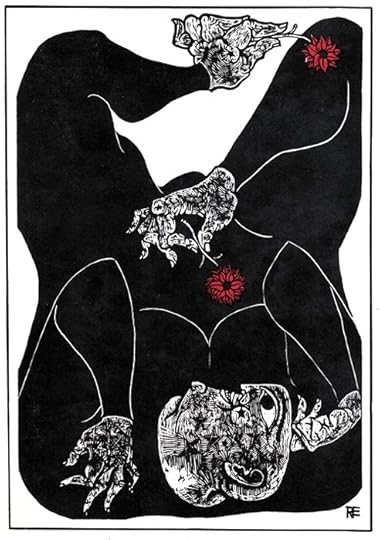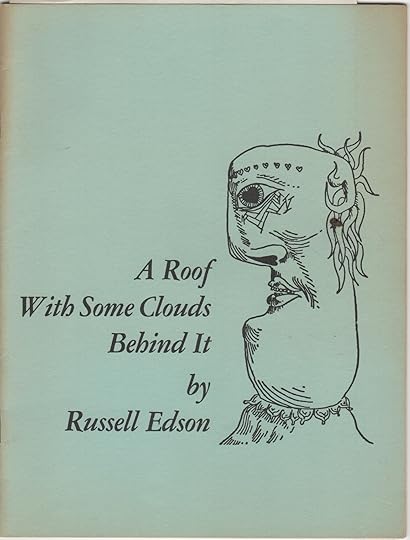What do you think?
Rate this book


193 pages, Paperback
First published January 1, 1976


A scientist has a test tube full of sheep. He wonders if he should try to shrink a pasture for them.
They are like grains of rice.
He wonders if it is possible to shrink something of of existence.
He wonders if the sheep are aware if their tininess, if they have any sense of scale. Perhaps they just think the test tube is a glass barn . . .
He wonders what he should do with them; they certainly have less meat and wool than ordinary sheep. He he reduced their commercial value?
He wonders if they could be used as a substitute for rice, a sort of woolly rice . . .
He wonders if he just shouldn't rub them into a red paste between his fingers.
He wonders if they're breeding, or if any of them have died.
He puts them under a microscope and falls asleep counting them . . .
- Counting Sheep (pg. 12)
When the God returns he gives the world to mannequins and toys. Dummies in store windows receive the world as though the world had always been theirs. Dolls that children played with are suddenly the masters; families are consigned to shelves and playrooms.
The world crawls with motherless toys that murmur, mama. Naked female mannequins, without vaginas, walk the roads at night like human ghosts . . .
A Raggedy Ann confronts a family at dinner. The painted smile is suddenly full of small animal teeth. She orders them out of the dining room into a closet.
They must obey.
She wants to cut mother's head off. She wants to cut father's penis off. She wants to open junior to see what's inside of junior.
They must obey . . .
- When the God Returns (pg. 26)
Some gentlemen are floating in the meadow over the yellow grass. They seem to hove by those wonderful blue little flowers that grow there by those rocks.
Perhaps they have floated up from that nearby graveyard?
They drift a little when the wind blows.
Butterflies flutter through them . . .
- The Gentlemen in the Meadow (pg. 44)
A lighted window floats through the night like a piece of paper in the wind.
I want to see into it. I want to climb through into its lighted room.
As I reach for it it slips through the trees. As I chase it it rolls and tumbles into the air and skittles on through the night . . .
- The Lighted Window (pg. 71)
A small girl had been given a pony because the anniversary of her entrance into this state had come round again.
Take your pony behind the house and mount him; we do not with to see you make a mockery of modest as your little gown blows up to reveal those lace undergarments, which are worn to keep your excretory openings in decorous hiding, said the mother.
The small girl led the pony around the back of the house and proceeded to mount the small horse.
Do not get on my back, I don't want you there, said the pony.
When the small girl returned to her parents and advised them of the pony's attitude they replied, get away from us.
Father said, you are only trying to create a situation when we shall be forced to view your underclothes.
No no, it is the pony who refuses to cooperate, cried the little girl.
We do not want you to be here anymore, said her mother.
Indeed, said father, I would rather the pony to this child.
The little girl began to cry.
Yes, said mother, I believe the pony will be our new child.
In which case today shall be the pony's birthday, said father.
And our daughter who is no longer our daughter shall be a gift to the pony, said mother.
The little girl was crying.
You will give the pony your pretty dress and lace loincloth, said mother, and we shall no worry about your modesty because you are now an animal which is to be given to our new daughter on her birthday.
And so they dressed the pony in their little daughter's clothes.
They said to the pony, take this animal behind the house and mount it, for we have no wish to be advised as to what it is you wear on your excretory area.
Soon the pony came around the house riding the naked little girl. She was crying.
- The Birthday Party (pg. 97-98)
An equestrian fell from his horse.
A nursemaid moving through the wood espied the equestrian in his corrupted position and cried, what child has fallen from his rockinghorse?
Merely a new technique for dismounting, said the prone equestrian.
The child is wounded more by fear than hurt, said the nursemaid.
The child dismounts and is at rest. But being interfered with grows irritable, cried the equestrian.
The child that falls from his rockinghorse refusing to remount fathers the man with no woman taken in his arms, said the nursemaid, for women are as horses, and it is the rockinghorse that teaches the man the way of love.
I am a man fallen from a horse in the privacy of a wood, save for a strange nursemaid who espied my corruption, taking me for a child, who fallen from a rockinghorse lies down in fear refusing to father the man, who mounts the woman with the rhythm given in the day of his childhood on the imitation horse, when he was in the imitation of the man who incubates in his childhood, said the equestrian.
Let me help you to your manhood, said the nursemaid.
I am already, by the metaphor, the don of the child, if the child father the man, which is involuted nonsense. And take your hands off me, cried the equestrian.
I lift up the child which is wounded more by fear than hurt, said the nursemaid.
You life up a child which has rotted into its manhood, cried the equestrian.
I lift up as I lift all the fall and are made children by their falling, said the nursemaid.
Go away from me because you are annoying me, screamed the equestrian as he beat the fleeing white shape that seemed like a soft moon entrapped in the branches of the forest.
- The Childhood of an Equestrian (pg. 101-102)
When we set sail I had no idea that the sails would bloat with wind like pregnant women.
I brought this to the attention of the Captain.
He adjusted my offended modesty by saying that the sails were married, and that by no means would he allow prostitutes to bear us forth.
An immediate applause broke from my hands.
- A Journey by Water (pg. 107)
The man's head is a vehicle . . . No no, let it sleep.
It has hair growing from its trouble. Hair grows out of the idea of death. The head is death with hair upon it. Also it is a vehicle upon which it is itself to ride through dreams and suppertime.
Do you see how the china is full of intestinal matter?
Soon, too soon, the soft mouth of the worm is eating the idea of itself . . .
- Through Dream and Suppertime, for W.C.W. (pg. 137)